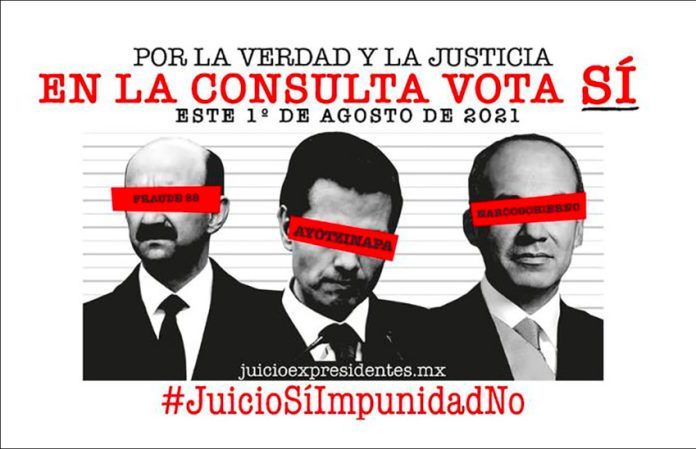It sounded like something from Robespierre’s terror. The people would deliver a verdict on five of their previous leaders, deciding whether they should face justice for their crimes. In the event, President López Obrador’s referendum on prosecuting his predecessors delivered a damp squib rather than revolutionary fireworks. Just over 7% of the population turned out to vote, a fraction of what was required for the exercise to be binding.
Investors have already experienced the damage López Obrador’s peculiar brand of democracy can do. In 2018, the newly elected president scrapped a badly needed and partly built US $13-billion new airport for Mexico City after a “people’s poll.” A $1.4-billion beer factory under construction in northern Mexico was canceled last year after a vote by 36,781 people in a city of 1 million.
Some voters in Sunday’s referendum may have been put off by the tortuous wording of the question, which was toned down by the Supreme Court. But any doubts would have been dispelled by the “wanted” posters produced by the referendum’s advocates. These showed ex-presidents Carlos Salinas, Enrique Peña Nieto and Felipe Calderón with red blindfolds detailing their alleged crimes under the slogan, “Do you want Salinas, Peña and Calderón to go to jail?”
A human rights organization pointed out that the ex-presidents were more likely to receive the justice of a Roman circus than the due process of a modern G20 nation. Critics questioned the need for a costly referendum when laws already on the Mexican statute books allow for the prosecution of corruption and other misdeeds in office.
Such arguments ignore the veteran populist’s political logic. López Obrador used the referendum to mobilize his supporters and remind them he is pursuing the enemies of his self-styled “fourth transformation” of Mexico — an epochal change he immodestly equates with the Mexican revolution of 1910 or independence from Spain. True to form, he hailed the referendum as a success because the vast majority of those who voted supported him.
In reality, López Obrador’s pursuit of justice appears curiously selective. Despite extraditing Emilio Lozoya, a former head of the state oil company Pemex, from Spain a year ago on charges of corruption in a scandal involving Peña Nieto, Lozoya has yet to appear in court and no prosecution has been brought against Peña Nieto.
The country’s notorious drug traffickers are being embraced with a presidential strategy of “hugs, not bullets.” On occasion, the embrace has been more than metaphorical. López Obrador released the son of jailed Sinaloa Cartel boss Joaquín “El Chapo” Guzmán, met and shook the hand of Guzmán’s mother, and publicly apologized for using the drug lord’s nickname.
Worrying reports have emerged that drug traffickers favored candidates from López Obrador’s party in midterm elections last month, kidnapping and threatening opposition candidates. Christopher Landau, U.S. ambassador to Mexico until January, has described López Obrador’s attitude towards the cartels as “pretty laissez-faire.”
The Biden administration, preoccupied with a politically toxic surge of migration from Mexico and Central America and keen to keep López Obrador as an ally, has said little on the subject — a reticence it will come to regret.
Mexico’s former leaders have been spared the tumbrils of López Obrador’s revolution for now. But the president’s fondness for show over substance conceals a worrying disregard for institutions and the rule of law. Investors should beware.
© 2021 The Financial Times Ltd. All rights reserved. Please do not copy and paste FT articles and redistribute by email or post to the web.
